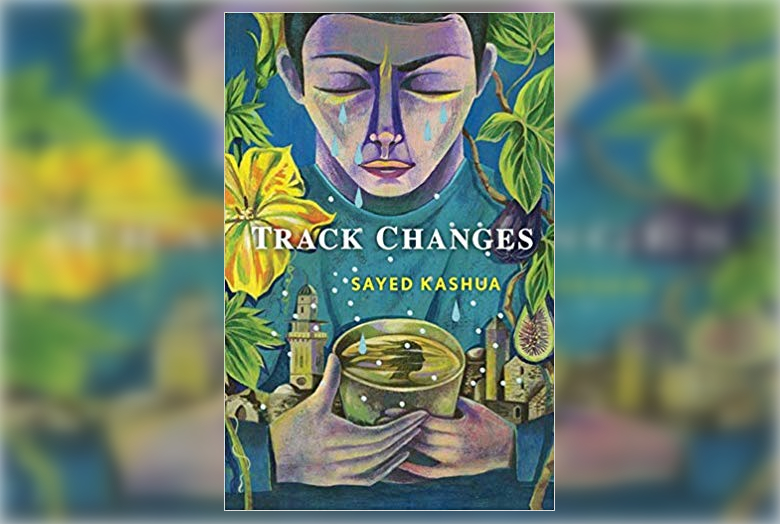“There are some things you can see only through tears,” Dr. R. Voth tells his readers in his Editor’s Note. A scholar of transgender theory and 18th century literature, Dr. Voth teaches in a crumbling, rat-infested university, where several stories of a library are being replaced with fancy boardrooms and bland office-space. Who needs so many books? the University appears to be asking. The Dean of Surveillance, whose job it apparently is to observe, among other things, how professors spend their time in the office, reprimands Voth for playing Scrabble on his phone instead of meeting with students or being contemplative. But by the time he is put on unpaid leave, it barely matters. Voth has discovered a manuscript among the discarded library books, and his pursuit of its authenticity completely obsesses him. Confessions of the Fox, the title of the 18th century manuscript, is also the title of the new novel by Jordy Rosenberg, who, like Voth is a scholar of transgender theory and 18th century literature. Confessions of the Fox, then, is a manuscript nestled within a manuscript, an examination of how truths and stories are made, validated, and affirmed. We only find out about the Dean’s discipline of Voth through the manuscript’s footnotes—which, as the novel progresses, become increasingly confessional.
The 18th century manuscript Voth can’t put down is a kind of adventure tale memoir that accounts the queer love story of Jack Sheppard and Bess Khan—displacing any discriminatory, contemporary assumption that queerness is either new or perverted. Around Jack and Bess, the 18th century world is steeped in deeply political issues relevant to our own time, like police brutality, governmental corruption and criminality, the moral bankruptcy of Capitalism, and the meaning or importance of authenticity.
The manuscript within Confessions bills itself as the true narrative of the legendary folk hero Jack Sheppard, a thief who became infamous and beloved by London’s poor for his ability to escape from captivity. In Rosenberg’s version, Jack is assigned female at birth, but isn’t, and his mother considers him an abomination. His birth name is redacted in the manuscript’s text and he is always and ever only Jack, even when he is forced to wear dresses in the household of the carpenter Kneebone to whom he is apprenticed. For nine years, Jack is basically jailed by Kneebone, who chains him up from his first night onwards with a lock that he tells Jack is impossible to pick. When Jack finds out eventually that it is, in fact, easy to pick, he is heartbroken, as is the reader:
Jack stared at the open contraption in his hand. He almost felt sorry for Kneebone for being so mistaken about the lock. Then he felt sorrier for himself for not having thought—not once in nine years—that Kneebone had not been so mistaken.
He had been lying.
Voth’s footnote to this passage starts with a kind of despair and recognition: “They take everything from you. Even your imagination. Then and now.”
When Jack meets Bess Khan, though, things begin to change for him. Bess—based on the real Jack Sheppard’s partner in crime, the Bonnie to his Clyde—is described in the manuscript as “lascar,” a South Asian sailor. Because no, actually, England wasn’t all white in the 18th century, despite what BBC adaptations of Jane Austen novels—or Brexit proponents—might tell you. Bess was born to an English mother and South Asian sailor who raised her in the fens, areas that during Bess’s childhood were still being drained by the government and private businesses to make way for pastureland that would eventually be fenced in and privatized. Those who lived in the fenlands lost their homes, their livelihoods, their food-providing waterways (gentrification isn’t a new concept, folks—its roots go deep). The political connotations and connections to our time don’t end there: When the English government warns citizens against plague, they charge that the disease is coming from South Asians. London’s government requires that the dirtiest and poorest parts of the city to be contained, explaining that the poor, foreign-born, or persons of color are more apt to spread disease. The use of fear tactics to enforce rule via discrimination echoes governments’ articulation of immigration policy today. The quarantine also recalls the panic that arose over HIV and AIDS in the ‘80s and ‘90s in the U.S. when criminality and deviancy were (and still are) assumed of and projected disproportionately onto black and brown people.
“Between this characterization [of Bess as lascar] and that of Jack’s assigned sex,” Voth writes in a footnote, pointing to these truths and possible fictions, “what we have here is either the most or the least authentic Sheppard document in existence.”
When Voth’s university engages a private company to force him into studying the manuscript for their own commercial purposes, Voth goes on the run, completing his annotation of the manuscript from a mysterious elsewhere. In this flight, we begin to understand that the manuscript’s authenticity no longer matters; like many texts from that time period, it is a composite of sorts, both fact and fiction as we understand them today, mixed together. Much like memory, history, and our understanding of identity: these things are fluid, no matter how much time and effort we spend trying to pin them down. History is most often written by the powerful; identity is often prescribed through societal norms; even memory is not entirely our own, subject as humans are to suggestion.
This is true of earlier work as well, including the travel narratives that became popular in the 17th century when English and Spanish ships traveled the world and “discovered” places and peoples. So, as Voth begins to accept the possibility that wherever the manuscript originated from it may have been added to or amended or changed, he also becomes even more dedicated to it. Its importance is its existence, and the existence of queer folks, trans folk, and people of color in times and places they have been erased from. In a closing section (and this isn’t a spoiler, but merely a good summary), Voth writes:
“There is the history that binds us all. The terrible history that began when the police first swarmed the streets of the cities and the settlers streamed down the decks of their ships, casting shadows on the world to turn themselves white. Casting the wickedest net. There is no trans body, no body at all—no memoir, no confessions, no singular story of ‘you’ or anyone—outside this broad and awful legacy.”
Within this political, identity-affirming landscape, it’s a seeming mystery that Voth never mentions intersex identity when discussing Jack, who is described as having an enlarged clitoris that, due to a particular crowdsourced elixir, is able to penetrate Bess. Clitoromegaly doesn’t necessitate or definitively indicate a person is intersex, but from a scholarly perspective, it is only surprising that Dr. Voth doesn’t mention this possibility with regards to Jack if definitions are fixed.
Confessions of the Fox is many things: in its historical accuracy it is a love letter to history and the way it is present in our everyday lives while also conveying a damning critique of the erasure of the experiences of persons of color like Bess, non-cis, and non-heteronormative people like Jack, Bess, and the other queer folk peopling the book. It portrays a diverse, fraught London, often left out of the lily-white 18th century England often imagined in popular culture. Confessions is a tribute to the work of dedicated academics (and includes references both within the text and a resource list at the end) while also serving as a warning about the present way that money and politics can take charge of and suppress the academy. Rosenberg uses the crude and dangerous conditions of 18th century gender-affirming surgery to to examine selfhood and the battle scars so sadly necessary to achieve that selfhood for some people. The book puts the police state—ours, others’—into relief with a celebration of (the hope for) freedom.
Perhaps Rosenberg’s greatest achievement with Confessions is the creation of an ambitious novel of both historical and contemporary meta-fiction, steeped in queer theory, trans theory, decolonial theory and intersectional feminism. Justice makes up the books foundational message—for meaningful equality, for human (and humane) rights and not simply the justice provided by laws already stacked against the marginalized.
Perhaps any attempt to define too closely what Jack Sheppard is or isn’t is to ignore the point of the novel. What matters more than definition or categorization, for Voth and for this reader too, is that Confessions resonates. It resonates emotionally, through its dedication to queer truths; politically, through its highlighting of erased history; and intellectually, by engaging with ideas and possibilities too often absent from the historical time period it is largely based in.
Photo Credit: Courtesy Random House




